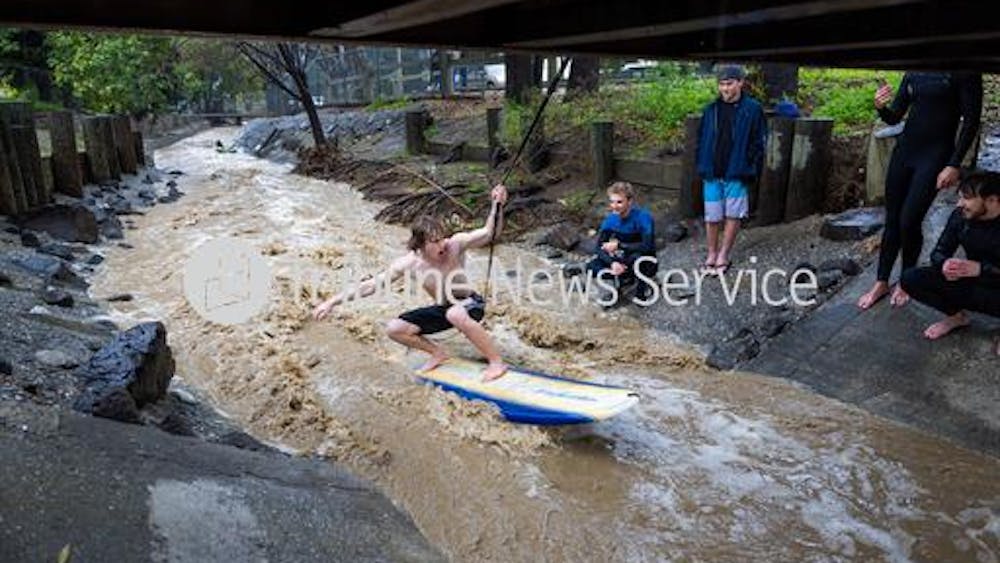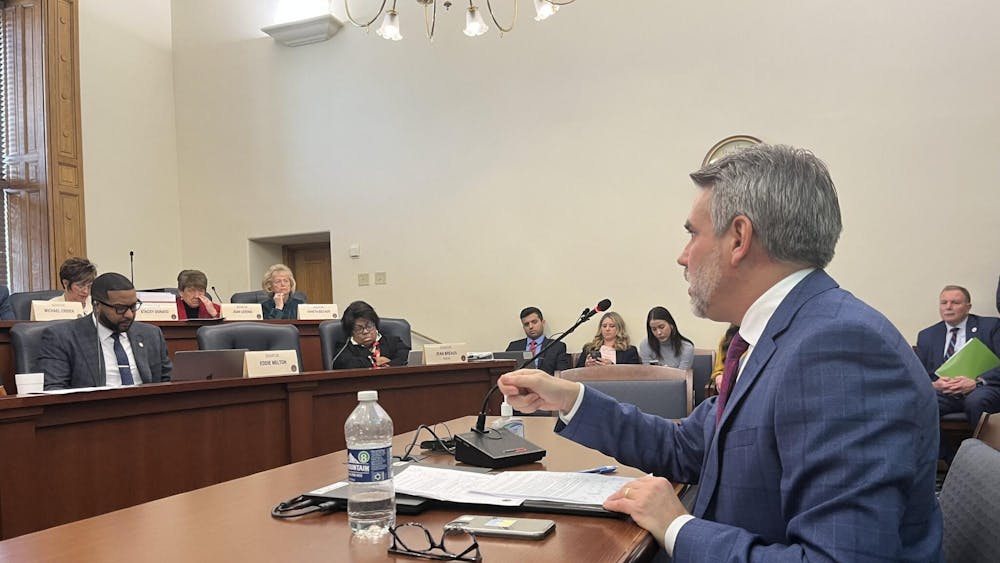Logan, a professor at Penn State University, spoke to a room of about 40 as part of the School of Public Environmental Affairs’ weekly Environmental Science Seminars.
A member of the National Academy of Engineering, Logan has spent the last 10 years researching various forms of electromicrobiology.
His presentation, titled “Energy Generation from Water: Just Add Salt,” explored several up-and-coming technologies in the field of bioenergy. Two of these technologies, both based on the production of energy through salinity gradients, were developed at Penn State.
“The motivation for all of this is simple: energy,” Logan said, pointing to current challenges in developing new resources for energy.
Logan said some of these challenges could be met through developing new energy resources through electrochemistry, renewable energy sources, carbon neutral resources and solar power.
Having received $10 million in funding for a 5-year research project, Logan worked with students at Penn State to seek new ways to extract energy, such as pressure-retardant osmosis or reverse electrodialysis. This specific research detailed the differences in river water and salt water and how their salinity levels could be changed.
Flynn Picardal, an associate professor in SPEA, said he had been following Logan’s research and thought it was time he shared some of his newer research at the talk.
In fact, Logan’s lecture presented research that was largely unheard of by the small audience.
“That’s one of the reasons why I asked him to come,” Picardal said. “Because then we can have something highly different. We have a lot of seminars on ecology or microbiology or organic chemistry, but this stuff is new, not only to people here, but even to people in the industry.”
Working with students, Logan said he actively encourages his students to pursue all ideas, good and bad. Citing an example of one student and her pursuit of electrode research, Logan said even seemingly “stupid” ideas can work out.
“It actually worked fabulously,” Logan said. “This is why you shouldn’t prejudge ideas.”
That one idea, consisting of charging electrons in an ionic field, yielded power capacities 50 times greater than in similar experiments.
Logan said his team’s research has practical application because 3 to 5 percent of energy goes through water infrastructure.
“If the whole world were to use that much electricity for their water infrastructure, it would be overwhelming,” Logan said. “And if that’s based on a fossil fuel economy, it spells terrible trouble.”
Logan said he believes his research in water salinity could be applied to wastewater, as well as river and salt water.
“Really what it could mean is that wastewater treatment plants can become, not a drain on society, but a resource recovery plant,” Logan said. “We recover nutrients. We recover energy. We recover water. We treat it, it’s good and we reuse it. We’re starting to move past this concept of wastewater to reused water to resource recovery.”





